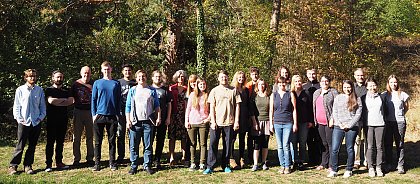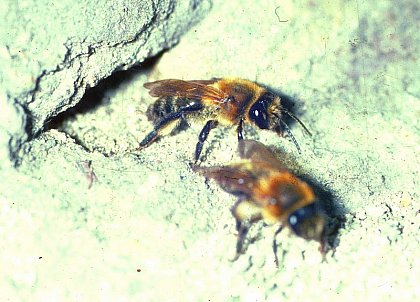Welcome to General Zoology

Paxton group October 2018
Insect evolutionary ecology (Paxton Lab)
Insect evolutionary ecology is the broad area that covers many of our research interests, with a special focus on bees (Hymenoptera: Apiformes). Bees are a diverse group of over 20,000 species, many of which are solitary, some of which are eusocial and a few of which exhibit intermediary forms of social organisation. This diversity in social organisation makes bees ideal for the study of social evolution, the first of our four research themes. The close coevolution between plants and their pollen vectors, particularly bees, has for long fascinated biologists. Bee-mediated pollination is rightly recognised as a major ecosystem service, and pollination forms our second research theme. It is not possible to study bees without being aware of the range of their pests, predators and parasites, many of which have major impacts on their hosts and which have been implicated in modulating social evolution and in causing the recently observed decline of bees in the Northern Hemisphere. Our third research theme concerns host-parasite coevolution, addressing those pathogens associated with honey bees (Apis mellifera) and other insect pollinator species. Increasing awareness of the threats posed to bees and other pollinating insects through anthropogenic effects, both direct and indirect, has led to national and international initiatives aimed at halting the decline of pollinators, which is addressed by our fourth research theme, insect conservation biology and genetics. In all four research themes, we make extensive use of molecular genetic techniques coupled to laboratory and field experiments and observations to answer questions from parentage through to phylogeny.

Two females of the communal nesting bee Andrena carantonica depart their common nest entrance
We are members of iDiv, the German Center for Integrative Biodiversity Research


